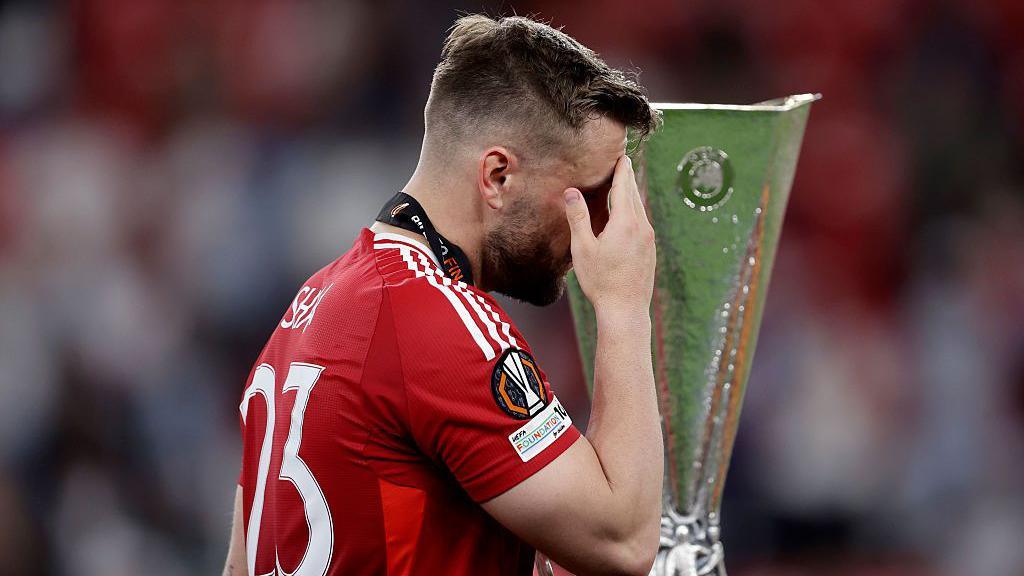Manchester United’s Europa League Final: A Night of Disappointment and Reflection

Manchester United, one of football’s most iconic clubs, faced a sobering defeat in the Europa League final. This match was not just a disappointment for fans from Manchester, but also a moment that’s likely to ignite deep reflection within the squad and its management. The outcome has sent shockwaves throughout the football community, underlining turbulent times for a team known for its high standards and expectation of success.
Europa League Final: Manchester United’s Struggles in Bilbao
On a night full of tension in Bilbao, Manchester United fell to Tottenham Hotspur, losing 1-0 after Brennan Johnson’s critical first-half goal. Despite having more possession and attacking opportunities, United could not convert their dominance into goals. The atmosphere was charged, with both sets of fans hoping for a different end to their season. For more insights and a full timeline of the match, read this live reaction from The Athletic.
The defeat marks the end of a challenging campaign for Manchester United. With their Premier League season already under scrutiny, this loss means the club will be without European football next season. That’s a prospect few in Manchester expected, reflecting the tough questions the club now faces about its direction and squad quality.
Post-Match Reactions: Manchester United Players Face Tough Questions
In the immediate aftermath, Luke Shaw was forthright about the tough situation. He questioned if the current Manchester United squad is truly "good enough" to represent the club. Shaw emphasized the need for reflection and change, acknowledging that this season has fallen below expectations. His thoughts resonate with many fans and stakeholders. For Shaw's full reaction, see this BBC Sport article.
Bruno Fernandes, the team’s influential captain, also spoke openly about his future, indicating he would leave if the club decided it was time. This candor illustrates the uncertainty surrounding Manchester’s squad this summer. Player departures and restructuring seem inevitable for a club trying to reclaim its winning culture.
Tactical Analysis: What Went Wrong for Manchester?
United’s head coach, Ruben Amorim, opted for a cautious strategy, deploying Fernandes in central midfield instead of his more creative No 10 role. This choice, alongside a lack of attacking spark, contributed to Manchester’s struggles to break down Tottenham’s defense. The Guardian's analysis points out that Fernandes—who usually thrives when the play revolves around him—was unable to influence the game as needed. The pressure led to errors and a lack of composure in vital moments. For a critical breakdown of United’s tactical issues, read this analysis from The Guardian.
The consequences of this defeat will ripple across Manchester. Supporters now look to the summer transfer window, expecting bold moves and decisive leadership from the club.
The Road Ahead for Manchester Football
For Manchester United, this Europa League final serves as both a warning and an opportunity. The club’s inability to secure silverware, coupled with a turbulent league season, highlights the urgent need for change. As the city’s football community digests this defeat, the pressure mounts on players, staff, and management to spark a new chapter.
Manchester’s identity—as a powerhouse in English and European football—remains intact, but the path to recovery must be mapped out promptly. Fans, now more than ever, demand accountability and vision from those at the helm.
Conclusion: A Time for Reflection and Action
Manchester’s Europa League final loss is a turning point. It’s a call for honest reflection and decisive action across all levels of the club. From tactical evolution to squad improvements, every aspect will be under the microscope. One thing is certain: football in Manchester never stays still, and supporters will be hoping the next chapter brings a much-needed return to glory.